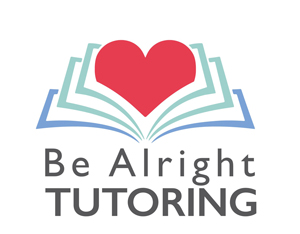
Five years ago, Sarah was worried about her 12-year-old’s obsession with the game Minecraft™.
“She’d spend HOURS playing this game,” Sarah remembered, “and ignore everything else.” Sarah remembers being a bit horrified at the amount of knowledge her daughter filed away about the game, which has gamers build villages from blocks. “She knew all these miniscule details about the characters and the versions, but she couldn’t remember her multiplication tables,” Sarah added.
Today, at 18, Sarah’s daughter isn’t interested in Minecraft any longer. She completed her freshman year in college and earned a 4.0. She plans to study historic preservation with a focus on old homes.
“I can see, now,” explained Sarah, “how this game helped prepare her for her future. She was attracted to the game because of her interest in construction and her natural creativity.”
In hindsight, the game didn’t turn out to be the obstacle Sarah imagined. While Sarah doesn’t encourage kids to ignore their multiplication tables, she does, today, realize there was some value in this online game for her daughter.
Meg Murray, PhD., is an educational psychologist and owner of Be Alright Tutoring. She hears many parents like Sarah express concern about the time and fixation their kids expend on certain online games.
Dr. Murray has guidance for parents struggling with online gaming and the question of “How much is too much?”
Reframe it
When gaming became a serious hobby for Dr. Murray’s teenage son, she decided to reframe the situation from a problem to a solution.
“My son loves the game Roblox™, which is big with this middle school and high school age group right now,” said Dr. Murray.
Like Minecraft and The Sims™, Roblox is a 3D immersion world, meaning gamers build a community and interact with other gamers.
“I run most of my business with my smartphone. Kids need these skills to remain competitive in today’s world. Games like Minecraft and others teach important modern work skills like computer coding. Let your children teach you and get involved with their online life.”
-Educational Psychologist Dr. Meg Murray, owner at Be Alright Tutoring
“This game has this whole world, where you have to work and pay bills,” said Dr. Murray. Instead of opposing the game, Dr. Murray used the 3D world to generate conversations about the real world. “My son would come to the dinner table, and we’d talk about the game and how it applies to life,” she said.
According to Murray, the game opened up discussions about bills and spending. She encourages parents to stay involved when it comes to gaming. “Problems brew when parents either shut down kids completely or ignore gaming,” said Dr. Murray.
“I think it’s important to have conversations about what kids are doing online. Ask them to explain and share with you the online games they find interesting. Ask how the games work and why these particular games are interesting to them. Make it relatable.”
Play it safe
While many online games have hidden value, there’s also hidden danger. Most games have parental controls, and it’s important parents educate themselves on how to monitor chats and other interactions gamers have with one another.
Some games allow gamers to take conversations to other venues like Skype™ and Zoom™, making younger kids especially vulnerable. Take an hour and research online about the particular game your child likes. If you search “online gaming, child safety concerns” and/or “parental controls (insert game’s name)” links will appear guiding your family how to stay clear of online danger.
Most of all, remember this online world is the world your children are experiencing, and it’s not going away. Children need savvy computer skills to navigate a world filled with smartphones, laptops and constantly evolving software.
“I run most of my business with my smartphone,” said Dr. Murray. “Kids need these skills to remain competitive in today’s world. Games like Minecraft and others teach important modern work skills like computer coding. Let your children teach you and get involved with their online life.”
Bottom line: Learn about your child’s favorite online game and open the lines of communication before placing judgment or severe restrictions.

